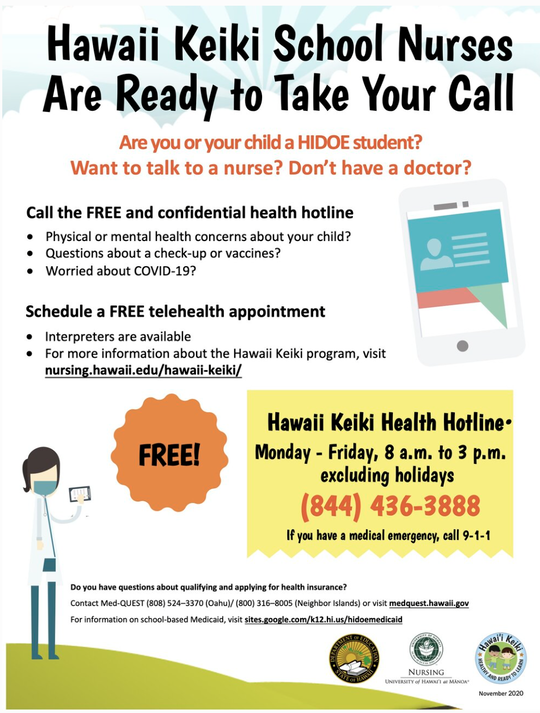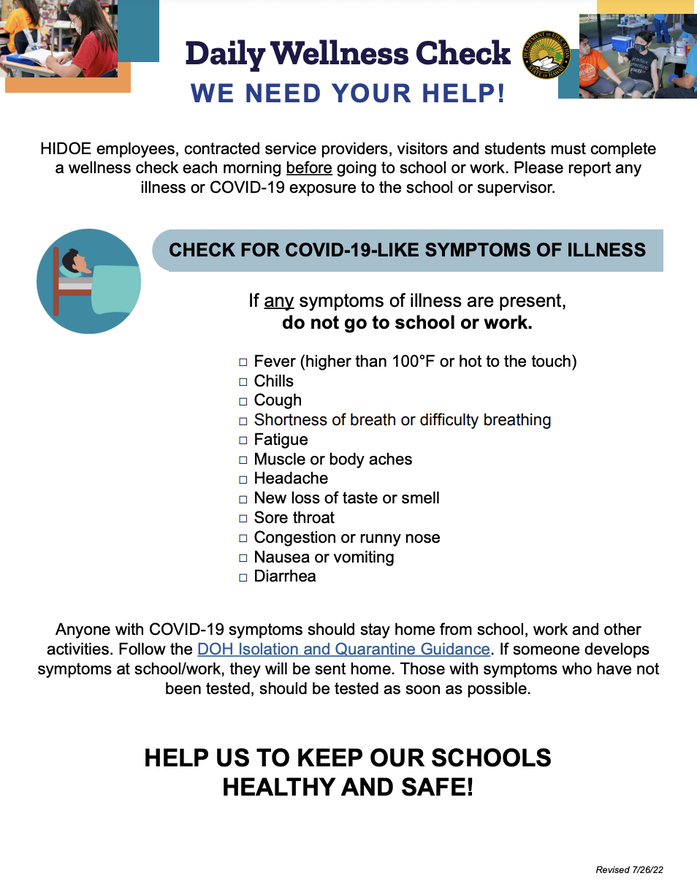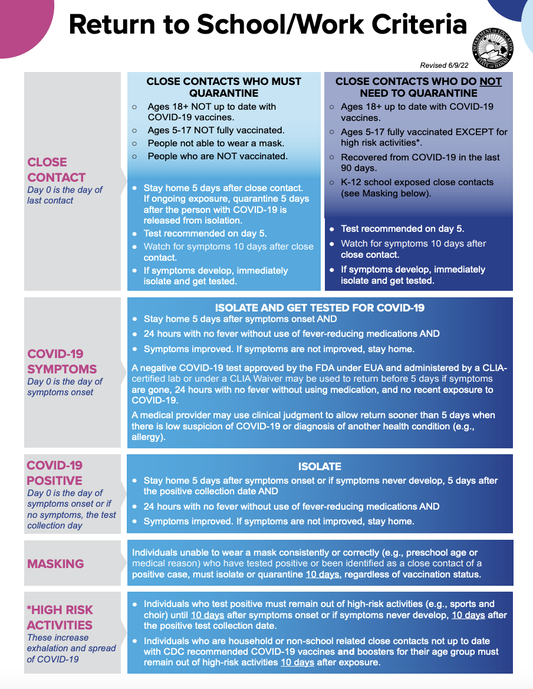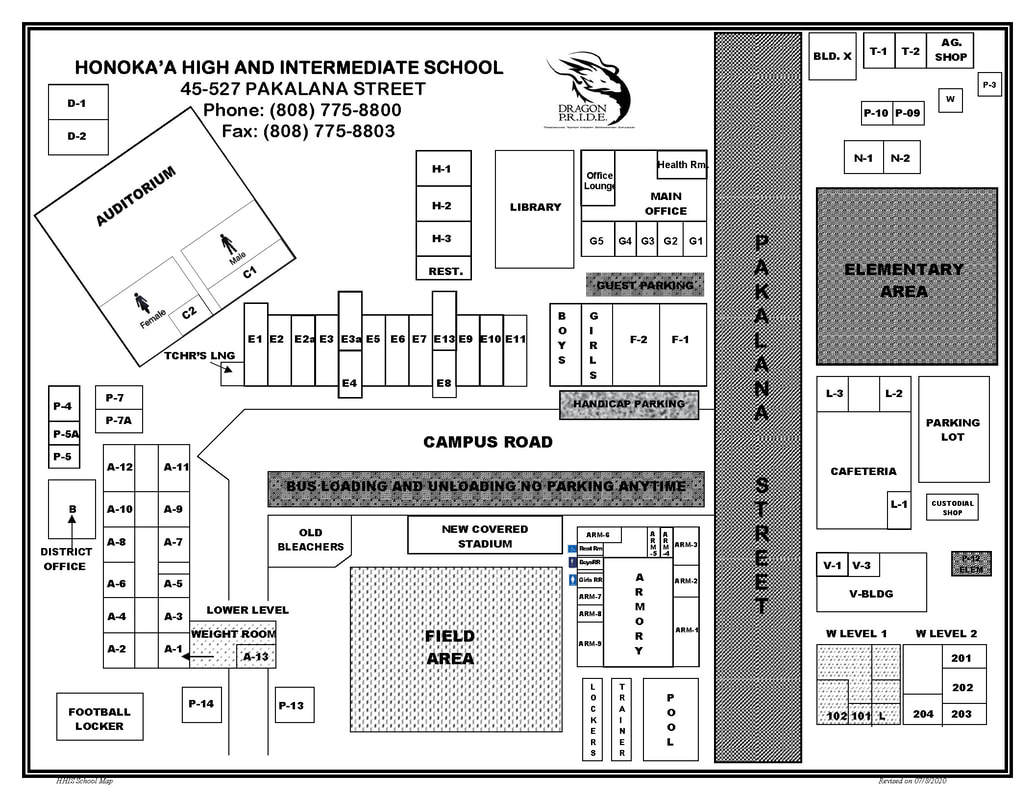COVID-19 Response

Hawaii Keiki: Healthy and Ready to Learn is a partnership between UH Manoa Nursing and the Hawaii Department of Education and sits at the intersection of education and health to support the DOE to achieve student, school, and system success.
The program is enhancing and building school based health services that screen for treatable health conditions; provide referral to primary health care and patient centered medical home services; prevent and control communicable disease and other health problems; and provide emergency care for illness or injury.
For more information, view the flyer attached or learn more at the Hawaii Keiki program site.
The program is enhancing and building school based health services that screen for treatable health conditions; provide referral to primary health care and patient centered medical home services; prevent and control communicable disease and other health problems; and provide emergency care for illness or injury.
For more information, view the flyer attached or learn more at the Hawaii Keiki program site.
School Safety
What Families Can Do:
Communicate: Talk with and listen to your children everyday
Communicate: Talk with and listen to your children everyday
- Show you care.
- Ask questions about their school day, including experiences on the way to and from school, lunch, and recess.
- Ask about their friends.
- Observe your child’s emotional state as changes in behavior, appetite, and sleep patterns may be a sign of anxiety or discomfort your child may be experiencing.
- Make time to talk with your child/children about school safety reassuring them that schools are safe places with adults to whom they can turn to.
- Create healthy anti-bullying habits, coaching your children on both what not to do (e.g., push, tease, be mean to others) as well as what to do (e.g., be kind, empathize, take turns, be respectful).
- Explain to your child on what to do if someone is mean to him/her or to another student. Tell the bully to stop, walk away and report it to an adult.
- Be a good example and model for your children. Remember, anytime you speak to another person in a mean or abusive way, you are teaching your child/children that bullying is okay.
- Maintain a daily routine schedule that is reassuring and promotes physical health.
- Ensure that your children get plenty of sleep, regular meals, and exercise.
- Encourage them to keep up with their schoolwork and extracurricular activities and don’t push them if they appear overwhelmed.
- Help your child/children identify at least one adult at school and in the community to whom they can go to if they feel threatened or at risk.
- Advise them not talk to strangers or get into any vehicle with a stranger.
- Have them report anything unusual to the adults in school.
- Inform them to always walk with a buddy and go straight home after school. Should after school plans change, they should inform family members promptly.
- Teach your child never to give their personal information to people they meet online, especially in chat rooms and on bulletin boards.
- If you have a family web site with your children’s pictures, do not include information about where they go to school, where you live, your phone number or any other personally identifiable information.
- Instruct your child never to plan a face-to-face meeting with online acquaintances, and to notify you if they are approached for an offline meeting.
- Establish clear ground rules for internet use for your family. Consider having a contract with your children that reflects these rules.
- Tell your children not to respond if they receive offensive or dangerous e-mail, chat requests, or other communications, and leave if they go to a web site that makes them uncomfortable.
- If you become worried that your child or another child is in danger, don’t hesitate to contact the authorities.



